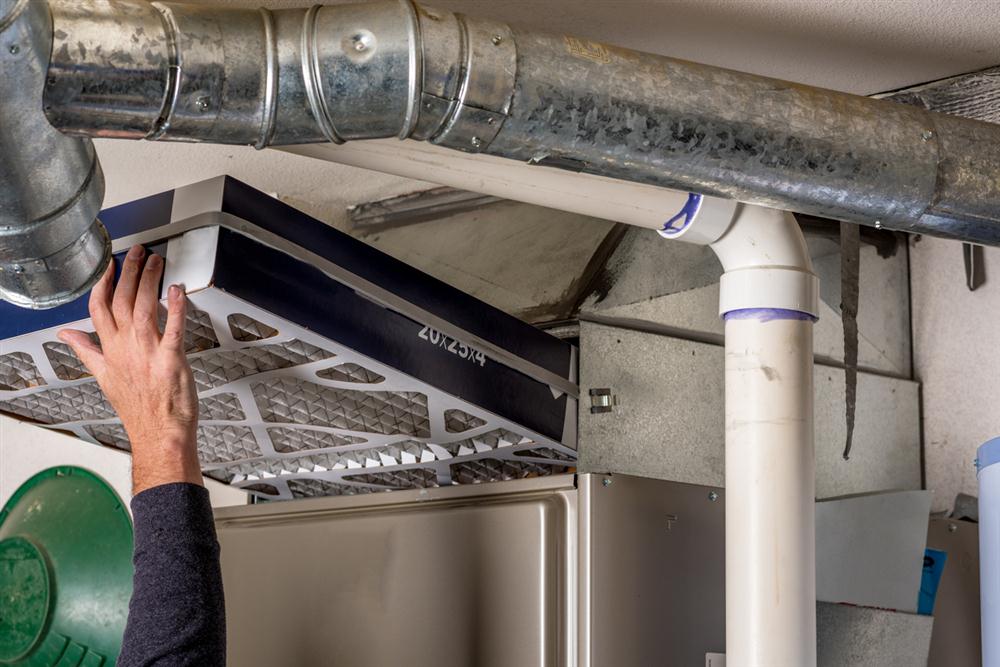A Quick Guide to Furnace Filters

We’ve all become more environmentally conscious over the years. We drive lower-emission cars, buy green, and monitor air quality alerts in the Sacramento area. But there’s another environment — the one in our homes — that we too often don’t give a second thought. According to the EPA, indoor air quality matters, especially if you or a loved one have allergies, asthma, or other respiratory issues. Understanding your furnace filters is an important first step in helping you breathe easy, and Ace Plumbing can help.
Why Do Furnace Filters Matter?
Because even if you keep a clean home, the air you’re breathing could be filthy. Among the things you’ll find there: cigarette smoke, formaldehyde, exhaust fumes, mildew, mold, pathogens, allergens, pet dander, dust… the list goes on and on. Given your HVAC system’s role in circulating and cleaning air throughout your home, its ability to filter as much of that particulate matter as possible matters.
Furnace Filter Types
There are five main types of furnace filters.
Fiberglass Filters
Made of layered fiberglass and protected by a mesh grate or grille, these are common, cheap, and disposable. While they’ll do in a pinch, they’re not quite as effective as the other filter types listed below.
Electrostatic Filters
Electrostatic furnace filters are intended to be long lasting or semi-permanent. They carry a slight electrical charge that acts as a magnet for dust particles and other airborne pollutants. Rather than changing them every few months, these are designed to be washed.
Pleated Filters
Pleated filters look a bit like an accordion. Those pleats increase surface area, allowing more particles to be captured from the air. Some pleated filters are also electrostatic and are designed for re-use; others are designed to be disposable.
HEPA Filters
HEPA filters require a bit of research before use. They’re extremely effective at removing allergens. However, the density of the filter is such that it restricts airflow, and can either raise your utility bills or damage your unit.
Activated Carbon
Activated carbon filters are useful for odor reduction — handy if you’ve got smokers, pets, or teenagers in the house — and can also reduce the presence of certain chemicals and volatile organic compounds in the air.
Furnace Filter Sizes
Furnace filters come in a number of sizes. We won’t list and belabor all of them here. However, we’ll say this much: size — more specifically, the right fit for your system, as listed on the filter housing — matters. A filter that isn’t the correct fit will either impede airflow or, conversely, allow too much air past the filter rather than through it. In either case, you’re defeating the purpose of having the filter in the first place.
MERV vs MPR
MERV is the Minimum Efficiency Reporting Value. It’s an industry standard that measures a filter’s effectiveness in trapping airborne particulate matter. The higher the number, the better the filter. MPR is specific to 3M filters, and measures the filter’s ability to capture even smaller particles.
In theory, the more small particles (3 microns and smaller) that a filter can capture, the better. In practice, it may be a different story. That’s because more effective filters can also cause airflow difficulties, causing your furnace to work harder and less efficiently. We don’t suggest buying an ineffective filter, but an external air purifier with a HEPA-rated filter may be a better bet — especially in homes with allergy sufferers.
HVAC Services in Sacramento
Your forced air system is doing a lot more than just keeping you cool when it’s hot out, or keeping you warm when the temperature drops. It also has a significant impact on the air quality inside your home. Understanding your furnace’s filter system means you can help it do its job better, making your home and everyone in it safer and more comfortable. If you need HVAC services in Sacramento, contact Ace Plumbing for installations, repairs, and HVAC tune-ups today



